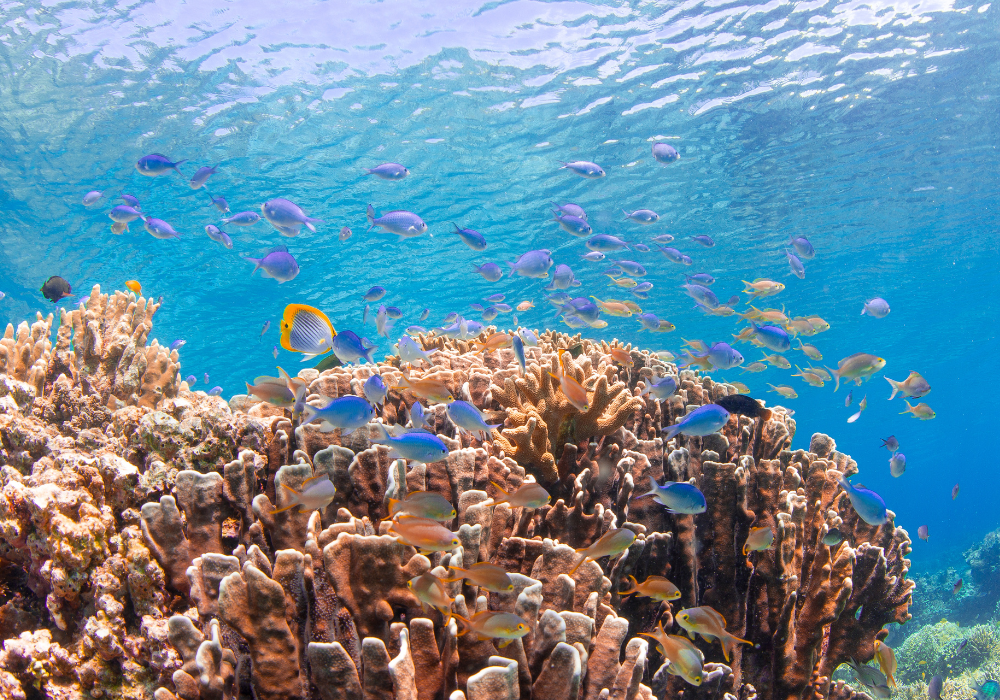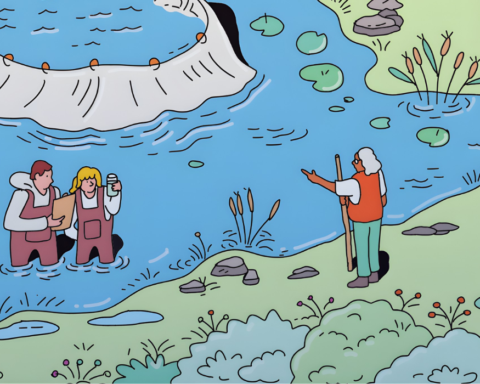Global temperature rise may feel like it’s gradual, but the changes it brings can turn out to be sudden, massive and self-reinforcing. These changes are what scientists call tipping points. When a tipping point is reached, an Earth system abruptly and dramatically changes, often irreversibly, like the Amazon rainforest turning into a savanna – a point of no return that is already perilously close.
But this week, a group of 160 scientists from 23 countries announced that the planet has already reached its first major tipping point: the widespread death of warm-water coral reefs. That’s due primarily to rapidly rising marine temperatures – the seas have absorbed 90% of the excess heat we’ve created – but also the acidification that comes from more atmospheric carbon dioxide interacting with water. (This interferes with corals’ ability to build the protective skeletons that form the complex structure of a reef.) Since the late 1980s, ocean surface warming has quadrupled. Accordingly, in the last half century, half of the world’s live coral cover has disappeared.
“We’re no longer talking about future tipping points – there’s one happening right now,” Steve Smith, a research impact fellow at the University of Exeter’s Global Systems Institute and a co-author of the report, told Grist. “Although our governments are used to planning for incremental, slow change, things do seem to be speeding up.”
The more individual corals perish, the harder it gets for a reef to bounce back, destabilizing it and pushing it into a spiral of die-off. A quarter of all marine species rely on these bustling warm-water ecosystems – which cover some 350,000 square miles – but corals are bleaching as they release the symbiotic algae they need to harvest energy. Since 2023, more than 80% of the world’s reefs have suffered through the most widespread and intense bleaching event on record. Ever-higher acidification makes it even harder for corals to reproduce and then grow back from this kind of disturbance.
Warm-water corals are particularly vulnerable to climate change because they’ve made an evolutionary compromise. Being close to the ocean surface, their symbiotic algae soak up bountiful sunlight to provide energy, meaning they don’t need to rely as much on outside nutrients. But that positioning also means that during marine heat waves, hot water envelops the corals, stressing them to the point where they release their algae, causing bleaching. “This is a tradeoff. They have a balance they have to strike,” said Gordon Zhang, a senior scientist at the Woods Hole Oceanographic Institution’s Reef Solutions group who wasn’t involved in the new report. “If the water doesn’t move much, and it’s a very shallow place, the water just keeps heating up.”
Beyond their critical role in hosting marine life, these reefs provide $9.9 trillion a year in goods and services, like fishing and tourism, supporting the livelihoods of one billion people. They also act like giant barriers for coastal communities, absorbing the impact of storm surges, the walls of water that hurricanes shove ashore: reefs in Mexico, for instance, reduced the damage from 2007’s Hurricane Dean by 43%.
Coral reefs, then, are both ecologically and economically essential, yet civilization is woefully unprepared for them reaching this tipping point – to say nothing of the other looming tipping points, like the retreat of glaciers. “We are now in a new reality, and we can no longer rely on the institutions and policies designed for the old one,” Manjana Milkoreit, who researches global governance at the University of Oslo and co-authored the report, said during a press conference announcing the findings.
For one, nations as a whole are nowhere near ambitious enough in reducing the greenhouse gas emissions that are putting unprecedented stress on coral reefs and other essential systems. Secondly, certain tipping points could be so catastrophic that governments would struggle to deal with the society-shaking fallout. A change in ocean currents in the Atlantic, for example, would plunge Europe into deep freezes and mess with the monsoon rains that faraway nations need for their crops. And thirdly, these irreversible changes can reinforce and exacerbate other crises – droughts would worsen if the Amazon turns into a savanna, for instance – a very unwelcome kind of synergy.
Basically, humans need to actively prevent tipping points, because there may be no going back once one kicks off. Coral ecosystems can’t recover and stabilize if we keep warming and acidifying the oceans. “The key message here is: Do not assume that we already know what to do, or we’re already doing everything we can,” Milkoreit said. “It’s not just more of the same, or a matter of implementing existing policies – a different approach to governance is needed.”
This article originally appeared in Grist here. It has been edited to conform with Corporate Knights style. Grist is a non-profit, independent media organization dedicated to telling stories of climate solutions and a just future.
The Weekly Roundup
Get all our stories in one place, every Wednesday at noon EST.







